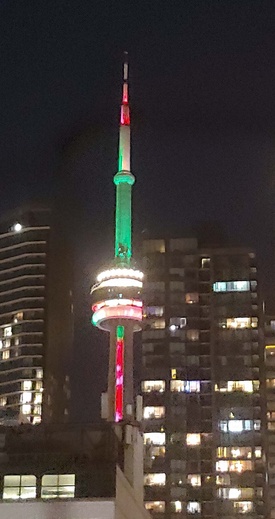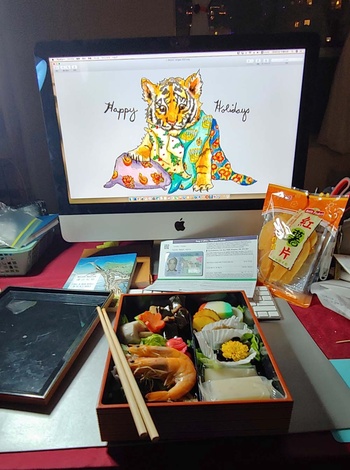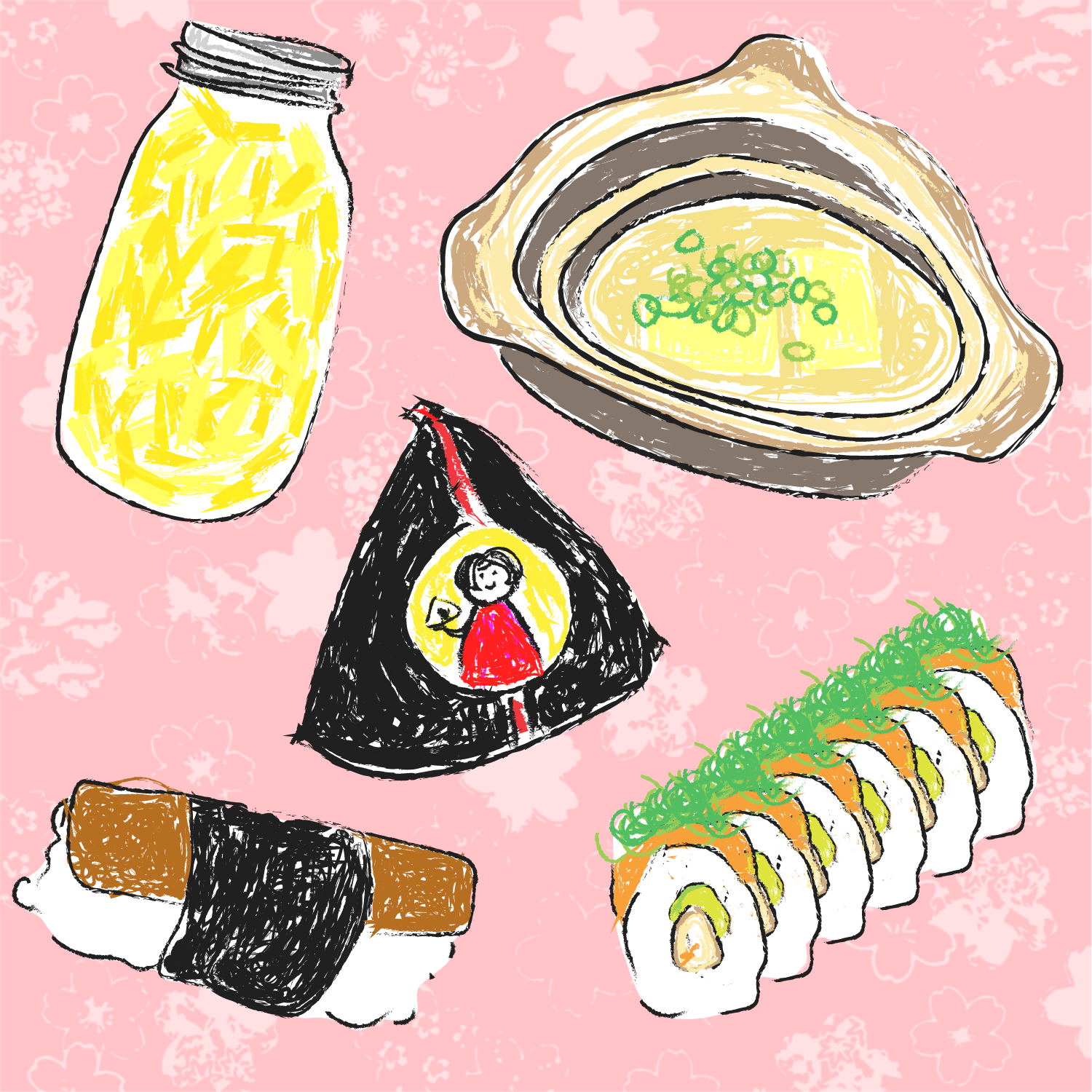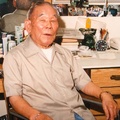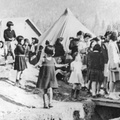From Delta to Omicron. The year 2021, too, passed by like a flash in the midst of the Covid-19 pandemic.
In the spring, the owner of our house, who had lost her job due to the pandemic, said she would put our house up for sale. Oh my goodness. Does that mean I’m going to become homeless after all? As I made a fuss over it, a social worker and friend of mine emailed me, “Apply for community housing as soon as possible,” and helped me do just that. A few months later, I settled down in an apartment right in the middle of downtown, at the foot of the CN Tower, next to Chinatown behind the Art Gallery of Ontario. A hundred years ago, this area was called “The Ward” and was a temporary residential place for immigrants, yet it has now become what I would call “The Torontonian Bento Box,” having everything from homeless shelters to skyscraper condominiums.
On New Year’s Eve, I counted down from my balcony with the CN Tower in sight. The echoing of the shout of “Yeah!” around the skyscrapers was accompanied by the sounds of countless fireworks exploding (I couldn’t see them because of the fog, though).
As I was looking at the cute picture of the Chinese zodiac sign (2022 is the Year of the Tiger), which my daughter Sonomi sends me every year, my friend Masako-san (known as a collector of Inuit Art) brought me this thoughtful osechi, saying “Let me share osechi, as we once again can’t hold a New Year’s dinner this year.”
Sitting arrogantly in the center of the lacquered box (called jyubako) is the shrimp which is written as “an old person of the sea” in kanji and read ebi in Japanese. It’s a bringer of good luck, represented by its long antennae and bent back, as people hope they would live long enough that their backs become bent. Kuromame (black beans) and kobumaki (kelp rolls) are eaten for their plays on words: a wish to be sincere and healthy even when facing hardships (kuro-shitemo-mamede) and to be delightful (yoro-kobu), as linked to the names of the two foods respectively. I put the mochi (or rice cake) in my zouni (a New Year’s soup dish). Mochi is another good luck symbol for the new year, as people would want their lives to last long, just as the mochi in the soup stretches when eating.
On the right is the nostalgic hoshi-imo (dried Japanese sweet potato) at $1.99 that I found in Chinatown, which is a 5-minute walk from my new home. It’s sweet in an elegant way and satisfies my taste buds. As it grows a lot, potato has the connotation of “hoping to be blessed with many children.” (I don’t need it myself anymore, though.)
In the middle is my driver’s license with my new address. I’m thinking about making this my last one, since my eyesight and legs have quite weakened. In life, it’s important to know when to give up. And on the left you can see a poetry book written by my friend and writer Matsuki Masutani titled “I will be more myself in the next world.” What good timing. I shall read it thoroughly and entertain him with my comments.
Thus, my first three days of the new year passed by quietly, and the CN Tower got its colorful lights. This year, too, started quietly and I’m supported by family and friends, determined to make it through the pandemic. Though I’m feeling a bit lonely and things could have been better, it must be a sign that there is still more potential to grow. This concludes my wish for the new year. Thanks for the osechi. I enjoyed it a lot!
Editor’s note: This story was submitted for Discover Nikkei’s Nima-kai Traditions: Oshogatsu Foods 2022 photo activity, but we decided to publish it on its own. See the rest of the submissions here.
What Is Nikkei Food?
Saturday, February 26, 2022
Join Discover Nikkei for a multilingual, virtual program exploring the topic of Nikkei food with a presentation, small group discussions, and optional networking opportunity following the program.
Learn More
© 2022 Yusuke Tanaka


